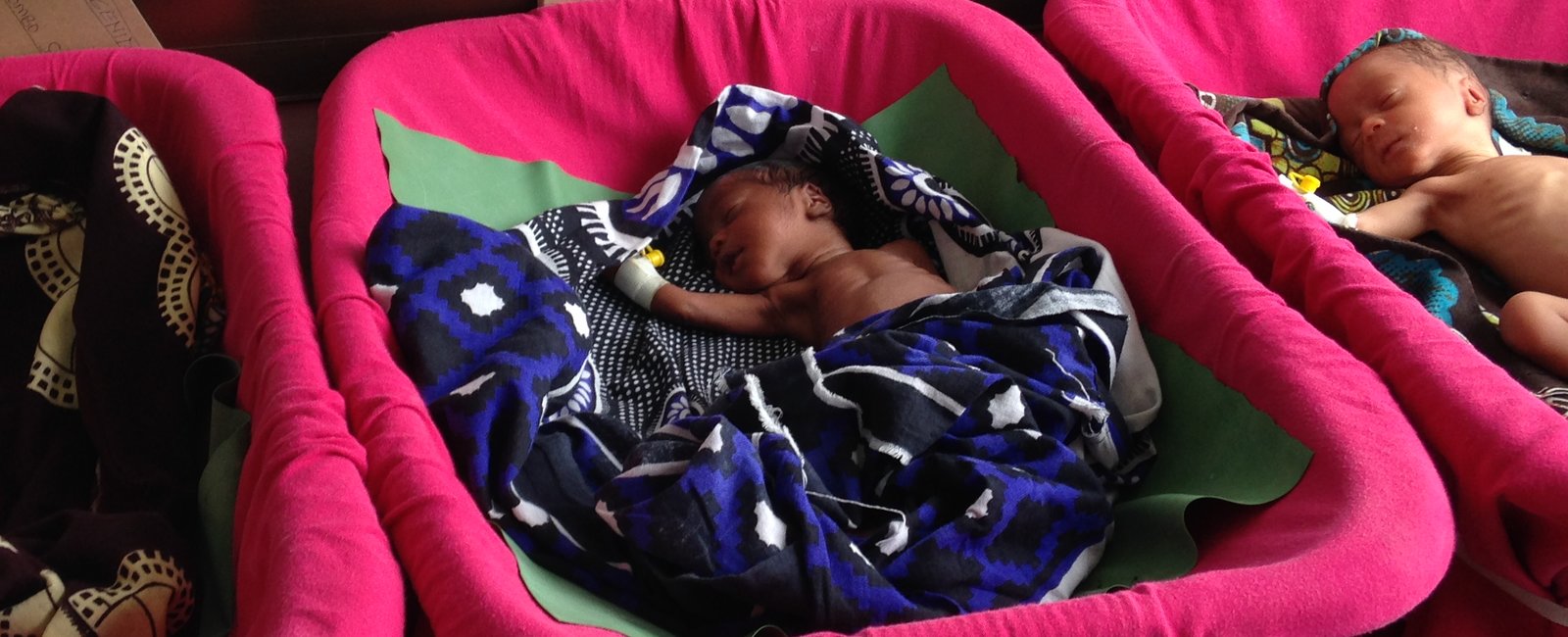Ready to elevate your midwifery expertise and broaden your horizons in ways you've never imagined? Step into the world of low-resource healthcare overseas – a life-changing opportunity to enrich your own practice and transform your understanding of midwifery.
On your overseas midwifery placement, you’ll experience the fundamental principles that underpin midwifery.
This journey will remind you of the essence of your discipline and the profound impact you can have on patients' lives.
And if you choose to undertake your placement with us you'll reap the benefits of our comprehensive service.
You'll get:
- Fully-tailored placement
- Pre-departure preparation with our UK team
- English-speaking supervision
- Private, catered accommodation
- 24/7 in-country team
- Airport pick up and drop off
- + more
But it’s the unique clinical experiences that are the core of your trip. And you don't need to take our word for it:
“I was constantly in awe of all the staff in the hospital, they had so many patients to look after but knew what every patient was in with and what treatment they were waiting for.”
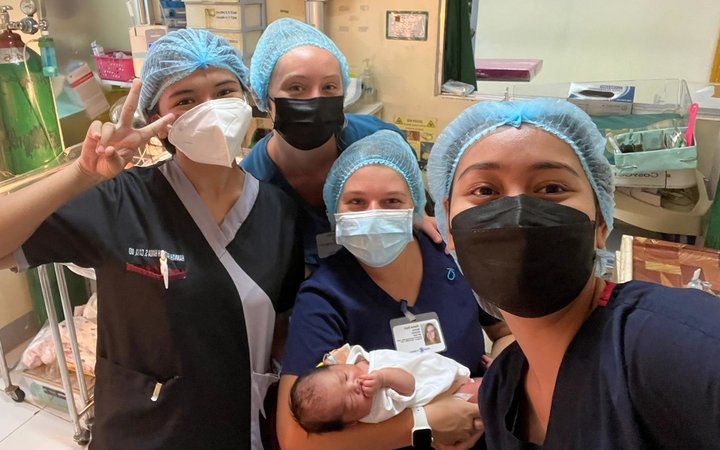
Iloilo, Philippines: "The conditions were very cramped and on the postnatal ward, there were as many as four women and their babies sharing a bed
The corridors in the hospital were lined with people waiting for clinics or beds on wards, but the staff knew who was waiting for what — the organisation in the hospital was impeccable.
Throughout my two-week placement, I was constantly in awe of all the staff in the hospital, they had so many patients to look after but knew what every patient was in with and what treatment they were waiting for." — Kemi Blundell, Canterbury Christchurch University
“I have become more resourceful and have a deeper understanding of what’s possible even with a lack of money and resources and how to cope when equipment is not available.”
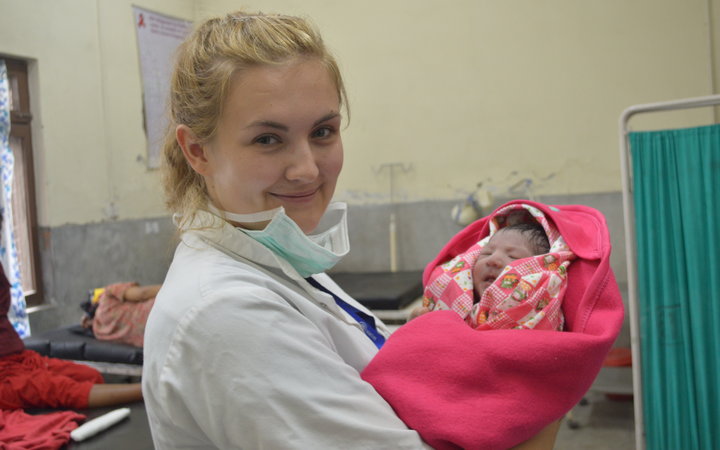
Kathmandu, Nepal: “My first impression of Kathmandu was amazement at how people were able to cope with the lack of resources available.
The healthcare system was so different and hard to witness at times because I was used to a certain level of care given in my own country.
As a result of my placement, I have become more resourceful and have a deeper understanding of what’s possible even with a lack of money and resources and how to cope when equipment is not available.” — Catriona McSorley, Keele University
“There wasn’t enough staff to sit with them and give them support — they were just sort of left to get on with it.”
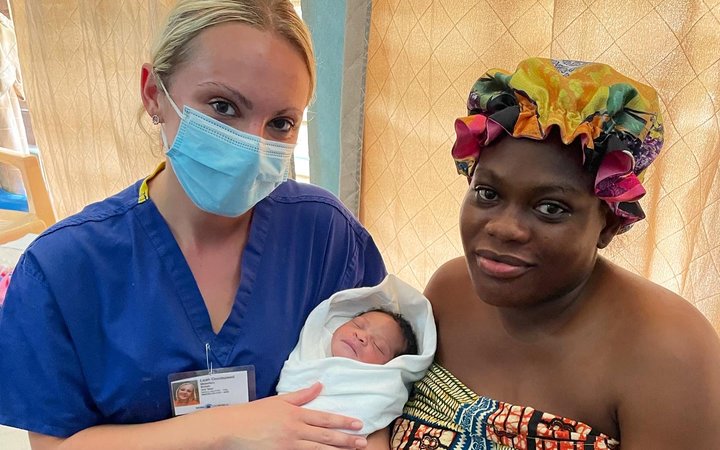
Takoradi, Ghana: “Another big difference was the level of care women received. I’m a qualified midwife now, so back at home I only have one woman to look after. But in my placement hospital in Ghana, there was a bay of women all in labour.
There wasn’t enough staff to sit with them and give them support — they were just sort of left to get on with it.
The midwives did go over to the women and listen to their babies, sometimes telling them that they were doing really well. But I didn’t see much of that, especially compared to what we’re trained to do in the UK.” — Leah Goodspeed, University of Southampton
“The postnatal and antenatal wards had very little privacy”
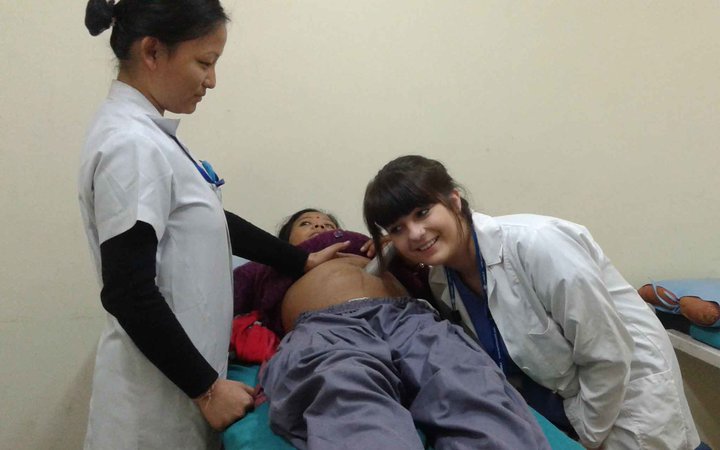
Kandy, Sri Lanka: “Women would labour together in one large room with multiple beds and curtains in between. This was vastly different to the UK where women have a private room during labour and birth.
Even the postnatal and antenatal wards had very little privacy, with the wall on one side of the room only halfway to the ceiling so people walking down the maternity corridor could see in.” — Charlotte Tincknell, Kingston University
“The unit was overwhelmed, with as many as fifty babies being treated.”

Dar es Salaam, Tanzania: “One of my more prominent memories is from when I was in NICU. The unit was overwhelmed, with as many as fifty babies being treated. I was introduced to a beautiful baby girl and was asked to bathe and feed her.
Staff informed me that this little girl was found abandoned in the street and only in NICU until she was well enough to be taken to the orphanage.
What was more shocking was how common this was in Tanzania. I was told that women frequently abandoned babies due to extreme poverty.” — Faatemah Mahetar, UCLAN
Your overseas midwifery placement gives you the rare opportunity to share skills and knowledge with equally dedicated midwives overseas. And if you keep an open mind, you’ll pick up perspectives that change your own approach to midwifery.
Embrace this once-in-a-lifetime opportunity and become a more versatile, adaptable, and compassionate midwife as a result.

Your next steps
Get eye-opening midwifery experience in a low-resource healthcare setting by enquiring now:
Get eye-opening midwifery experience in a low-resource healthcare setting by enquiring now:
